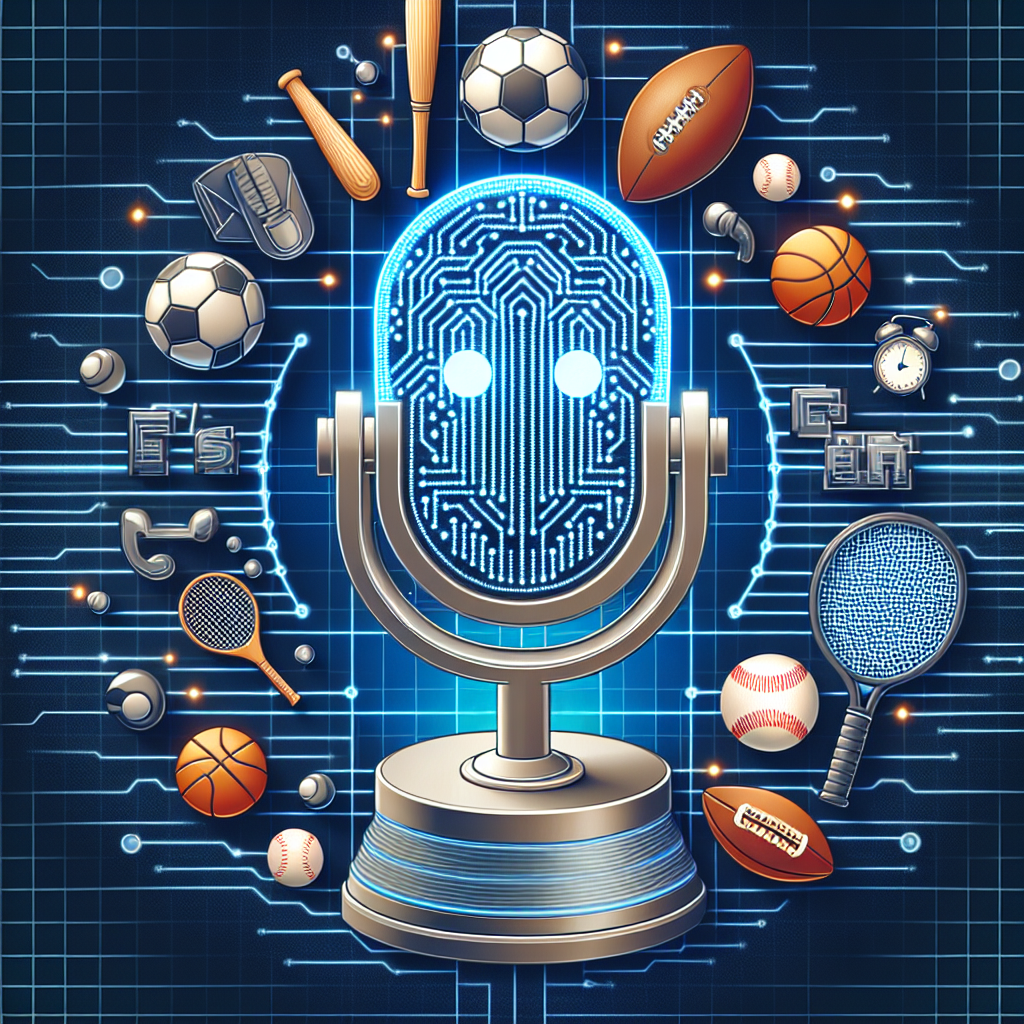Artificial Intelligence (AI) has become an integral part of many industries, including sports broadcasting. AI technology is being used to enhance the viewer experience, improve the accuracy of game analysis, and provide valuable insights to coaches and players. However, the use of AI in sports broadcasting raises ethical concerns that need to be addressed.
One of the main ethical concerns surrounding the use of AI in sports broadcasting is the potential for bias in the analysis of game data. AI algorithms are trained on historical data, which may contain biases that can impact the accuracy of the analysis. For example, if the training data contains biases against certain players or teams, the AI system may produce biased results that could influence viewers’ perceptions of the game.
Another ethical issue is the potential for AI to infringe on the privacy of athletes. AI technology can analyze vast amounts of data, including personal information about athletes, which raises concerns about data security and privacy. There is also the risk of AI systems being used for surveillance purposes, such as tracking athletes’ movements on and off the field.
Furthermore, the use of AI in sports broadcasting raises questions about the impact on the job market. As AI technology becomes more advanced, there is a concern that it could replace human sports analysts and commentators, leading to job losses in the industry. This raises ethical questions about the responsibility of companies to ensure that AI technology is used in a way that benefits both viewers and workers.
In addition, there are concerns about the potential for AI to perpetuate stereotypes and discrimination in sports broadcasting. AI systems can inadvertently reinforce existing biases in the analysis of game data, leading to unfair treatment of certain players or teams. It is important for companies to be aware of these risks and take steps to mitigate them in order to ensure that AI technology is used ethically in sports broadcasting.
Despite these ethical concerns, there are also many benefits to using AI in sports broadcasting. AI technology can provide valuable insights to coaches and players, helping them improve their performance on the field. It can also enhance the viewer experience by providing real-time analysis and commentary that adds to the excitement of the game.
To address the ethical concerns surrounding the use of AI in sports broadcasting, companies must take steps to ensure that their AI systems are transparent, fair, and accountable. This includes regularly auditing the algorithms to check for biases, providing clear explanations of how the AI technology works, and obtaining consent from athletes before collecting and analyzing their data.
Overall, the use of AI in sports broadcasting has the potential to revolutionize the industry and enhance the viewer experience. However, companies must be mindful of the ethical implications of using AI technology and take steps to ensure that it is used in a responsible and ethical manner.
FAQs:
Q: What are some examples of AI technology used in sports broadcasting?
A: Some examples of AI technology used in sports broadcasting include automated camera systems that track players’ movements on the field, AI-powered analytics tools that provide real-time insights for coaches and players, and voice recognition software that enhances commentary and analysis.
Q: How can companies ensure that AI technology is used ethically in sports broadcasting?
A: Companies can ensure that AI technology is used ethically in sports broadcasting by regularly auditing the algorithms for biases, providing clear explanations of how the AI technology works, obtaining consent from athletes before collecting and analyzing their data, and taking steps to mitigate the impact on job market.
Q: What are the benefits of using AI in sports broadcasting?
A: The benefits of using AI in sports broadcasting include providing valuable insights to coaches and players, enhancing the viewer experience with real-time analysis and commentary, and improving the accuracy of game analysis.
Q: What are the ethical concerns surrounding the use of AI in sports broadcasting?
A: The ethical concerns surrounding the use of AI in sports broadcasting include the potential for bias in the analysis of game data, infringement on the privacy of athletes, impact on the job market, and perpetuation of stereotypes and discrimination.

